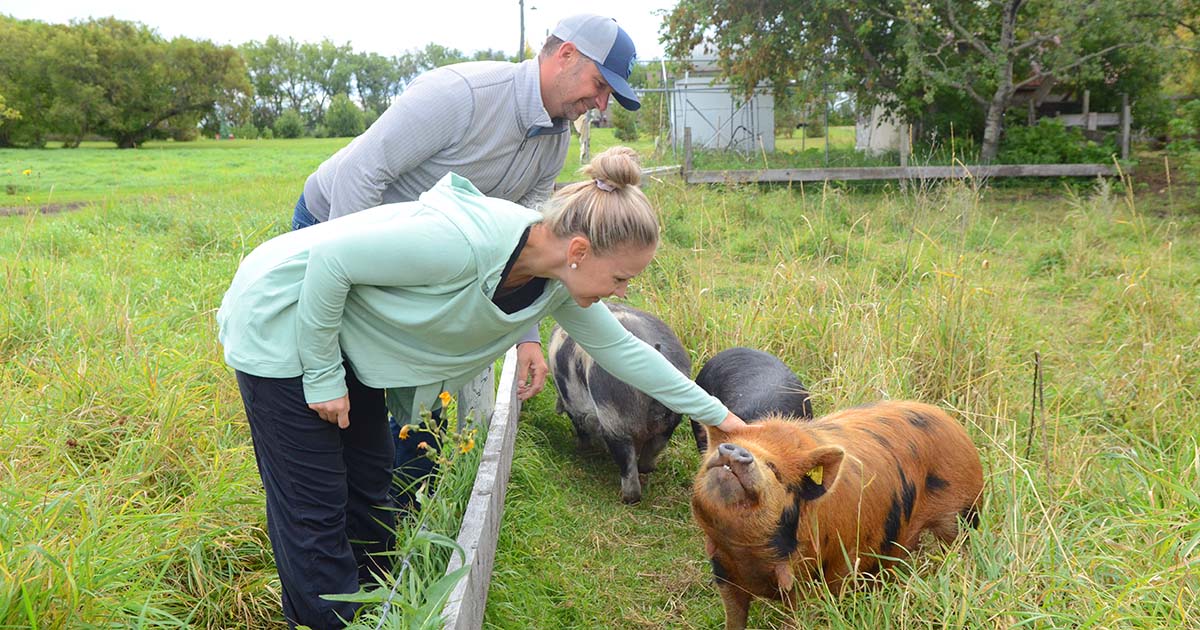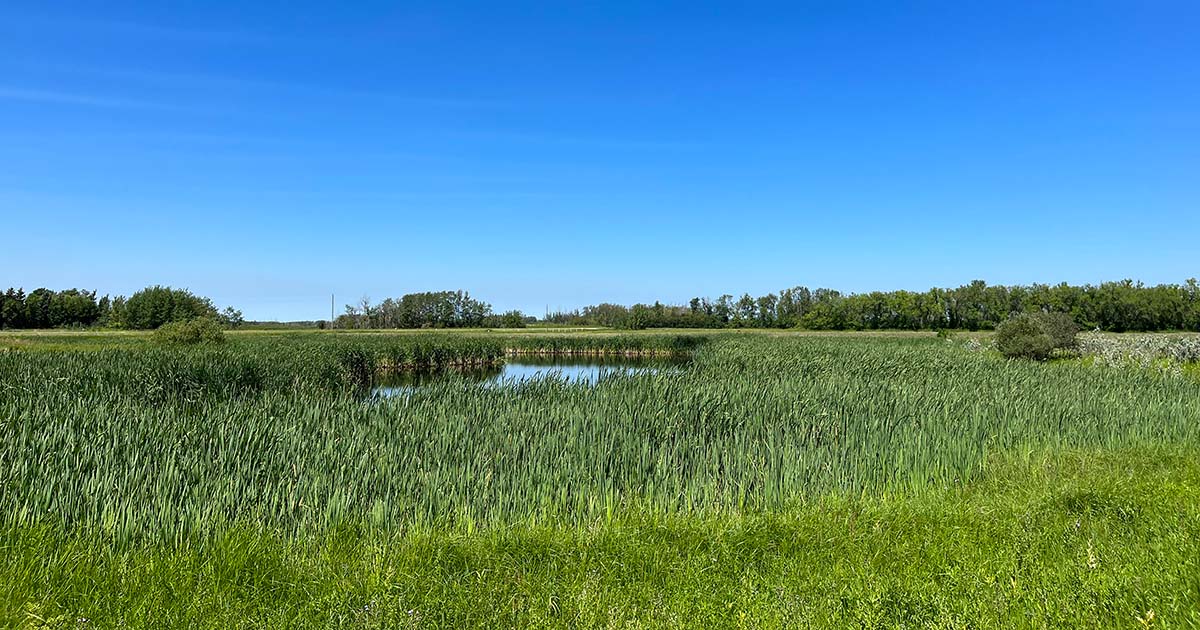Story
January 9, 2023
Work with nature, urges Manitoba farmer
Conservation agreement compliments biodiversity and land management goals
Colin Bialkoski believes in a nature-first approach to work and life. He farms organically near Rossburn, Man., and is protecting natural areas on his farm with DUC.
“You should be trying to align yourself with nature rather than working against it,” he explains.
Bialkoski and his wife Cheryl joined a growing movement in 2021 and registered their farm as organic. The latest Census of Agriculture shows organic acres in Canada increased from 2.2 million in 2013 to 3.4 million in 2019. Manitoba’s organic acres grew 16 per cent from 2020 to 2021, according to the Canada Organic Trade Association.
Instead of using synthetic fertilizer, the Bialkoskis replenish soil nutrients and improve fertility with organic management techniques.
“It’s all part of this ecosystem,” says Cheryl. “It’s the way nature intended.”

We love having the birds and seeing the deer. We have no desire to bring a bulldozer in here and plow down the bush and drain the sloughs and make it all ‘productive’.
Conservation’s many benefits
Preserving natural habitat fits perfectly with the Bialkoskis’ land management plan. In 2022 as the harvest finished and the fall colours enveloped their farm, they signed a DUC conservation agreement to protect nearly 50 acres dotted with marshes and bluffs of trees.
“We notice coming from B.C., there are a lot more birds around here,” says Colin. “We love having the birds and seeing the deer. We have no desire to bring a bulldozer in here and plow down the bush and drain the sloughs and make it all ‘productive’.”
Beyond the benefits to wildlife, the Bialkoskis believe that conserving natural areas directly supports their farming operation. “Trees and grasses help take up moisture from the ground in low-lying areas close to marshes, so the land beside it doesn’t become so saline that you can’t even grow a crop,” says Colin.

The Bialkoskis chose to work with DUC because the conservation agreement provides the flexibility they need to effectively manage their farmland.
“It’s important to preserve land for wildlife but you don’t want to take away cultivated land that a person can make a living from,” he explains. “From what I saw, DUC worked best for me.”
Cheryl adds, “What DUC is doing is a good thing. DUC respects the balance of farming and understands that farmers need crop-able land, while also preserving what you can.”
It’s important to preserve land for wildlife but you don’t want to take away cultivated land that a person can make a living from. From what I saw, DUC worked best for me.
Cheryl adds, “What DUC is doing is a good thing. DUC respects the balance of farming and understands that farmers need crop-able land, while also preserving what you can.”
Interested in a conservation agreement on your Manitoba land? Visit https://ag.ducks.ca/program/conservation-agreements/.
